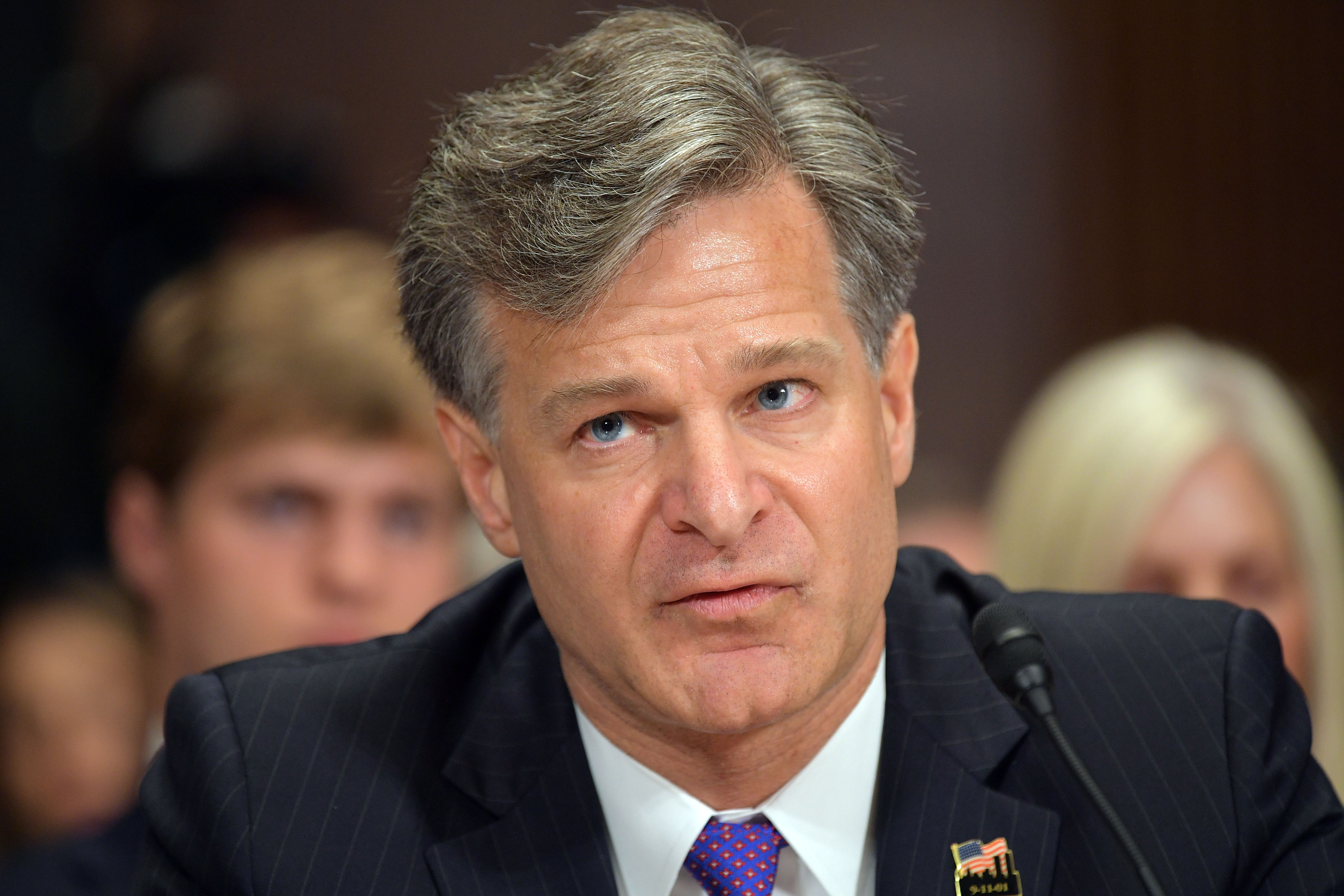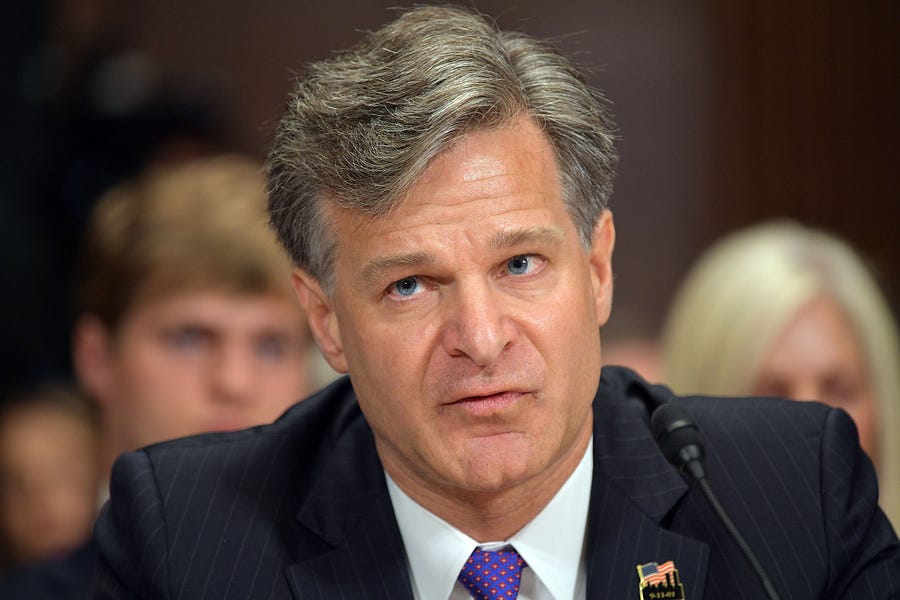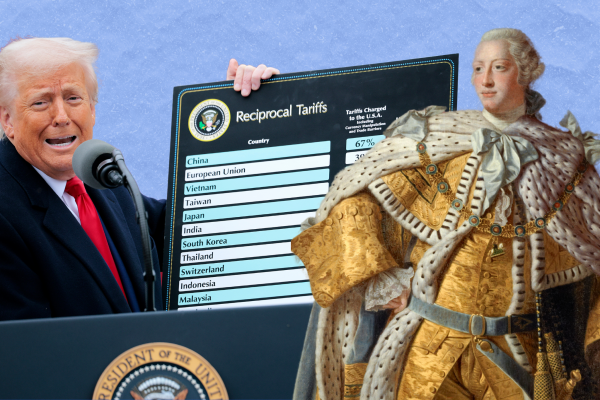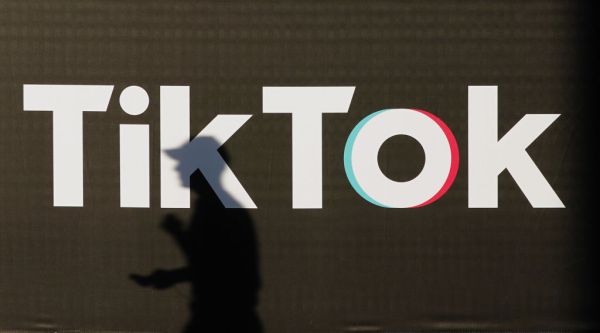Happy Thursday! Hey, guess what—there’s a Dispatch Live tonight! Sure, you have to sit through a presidential debate first, but delayed gratification is good for you. Details are here; we’ll plan to start about ten minutes after they wrap things up in Nashville.
Quick Hits: Today’s Top Stories
-
The United States confirmed 59,053 new cases of COVID-19 yesterday per the Johns Hopkins University COVID-19 Dashboard, with 6.7 percent of the 885,072 tests reported coming back positive. An additional 1,046 deaths were attributed to the virus on Wednesday, bringing the pandemic’s American death toll to 221,990. According to the COVID Tracking Project, 40,271 Americans are currently hospitalized with COVID-19.

-
Director of National Intelligence John Ratcliffe and FBI Director Christopher Wray briefed the public last night on efforts by Iran and Russia to influence American elections. Ratcliffe specifically mentioned “spoofed emails designed to intimidate voters, incite social unrest, and damage President Trump.”
-
In a new documentary, Pope Francis stated his support for the legal recognition of same-sex civil unions. “Homosexual people have the right to be in a family,” the pontiff said. “They are children of God. You can’t kick someone out of a family, nor make their life miserable for this. What we have to have is a civil union law; that way they are legally covered.”
-
Senate Democrats on Wednesday blocked a vote on Senate Republicans’ $500 billion coronavirus relief package, holding out hope for a much larger ($1.8 trillion+) deal to be struck between Speaker Nancy Pelosi and the Trump administration.
-
San Francisco school officials announced public schools would not open for in-person learning for at least the rest of 2020, citing a shortage of testing and difficulties with planning for social distancing. The city has one of the lowest rates of positive COVID-19 tests in the country and has avoided the uptick in cases seen across much of the rest of the United States.
-
Former President Barack Obama hit the physical campaign trail for the first time this cycle, mocking President Trump relentlessly in a speech delivered in Philadelphia. “With Joe and Kamala at the helm, you’re not going to have to think about the crazy things they said every day,” Obama argued. “It just won’t be so exhausting. You might be able to have a Thanksgiving dinner without having an argument.”
-
A recent New York Times/Siena College poll indicates popular support for several planks of Joe Biden’s campaign platform. More than 70 percent of U.S. likely voters support a new $2 trillion stimulus package, 67 percent favor a public health insurance option, and 66 percent support Biden’s $2 trillion climate plan. The poll also found likely voters supported Amy Coney Barrett’s nomination to the Supreme Court 44 percent to 42 percent, and only 31 percent of voters approved of Democrats hypothetically increasing the size of the Supreme Court if Barrett is confirmed and Biden wins the White House.
A Note and an Update on Hunter Biden
As we’ve reported on the New York Post’s recent allegations against Joe and Hunter Biden, we’ve urged you to remain cautious about them because their provenance was unknown, they’re sourced to the president’s deeply unreliable lawyer Rudy Giuliani, their origin story included several odd and contradictory details, and some experts have warned they could be part of a foreign disinformation campaign.
But this morning, according to the Post, a former business partner of Hunter Biden’s has come forward to confirm he was the recipient of at least one of the most eyebrow-raising emails allegedly sourced to the laptop: One in which Hunter discussed equity in a Chinese business deal that included a 10-percent stake for “the big guy.”
The Post quotes Tony Bobulinski, a Navy veteran, who says that while he worked with Hunter the younger Biden “frequently referenced asking [Joe] for his sign-off or advice on potential deals that we were discussing.”
“I’ve seen Vice President Biden saying he never talked to Hunter about his business. I’ve seen firsthand that that’s not true, because it wasn’t just Hunter’s business, they said they were putting the Biden family name and its legacy on the line,” Bobulinski said. “The Biden family aggressively leveraged the Biden family name to make millions of dollars from foreign entities even though some were from communist controlled China.”
Much remains to be seen about this story, but by going on-record Bobulinksi has strengthened two planks of the Post’s previously rickety story: That at least some of the correspondence obtained by Giuliani about Hunter’s shady foreign deals appears to be legitimate, and that Joe may well have known about those deals at the time. We’ll continue to report on these developments, remaining cautious about the many unusual aspects of the story but updating you on reporting confirmed by on-the-record sources or that otherwise appears credible.
U.S. Intelligence Community to Foreign Adversaries: We Know What You’re Up To

Just after 7:00 p.m. last night, the Department of Justice issued an advisory letting reporters know that national security officials would be briefing the media on issues related to election security in less than half an hour.
Minutes later, Director of National Intelligence John Ratcliffe was kicking off the last-minute press conference. “We would like to alert the public that we have identified that two foreign actors—Iran and Russia—have taken specific actions to influence public opinion relating to our elections,” he said. “We have confirmed that some voter registration information has been obtained by Iran, and separately, by Russia. This data can be used by foreign actors to attempt to communicate false information to registered voters that they hope will cause confusion, sow chaos, and undermine your confidence in American democracy.”
Ratcliffe added—in reference to reports Tuesday of an entity masquerading as the far-right Proud Boys group emailing Democrats in swing states and threatening them to vote for Trump—that the intelligence community has seen Iran “sending spoofed emails designed to intimidate voters, incite social unrest, and damage President Trump.”

Voter registration data is publicly available online in most states; Iran or Russia would not necessarily have needed to hack into any systems to obtain it. But such data allow adversaries to target individuals with disinformation like the email above.
Ratcliffe said these disclosures were not partisan in nature, and that “there is complete unanimity in the U.S. government in our resolve to combat the enemies of freedom.” The DNI added that the emails were “designed to intimidate voters, incite social unrest and damage President Trump.” But appearing on MSNBC last night, Sen. Chuck Schumer said Ratcliffe’s public comments were in conflict with what he told members of Congress in a classified briefing earlier in the day. “From the briefing, I had the strong impression [Iran’s effort] was much rather to undermine confidence in elections and not aimed at any particular figure,” Schumer said.
Ratcliffe did not provide evidence to support the intelligence community’s attribution of the plot to Iran, nor did he take any questions from reporters. But the quick detection and public disclosure of the plot was important—particularly with record-setting numbers of ballots being cast ahead of Election Day.
“You should be confident that your vote counts,” said FBI Director Christopher Wray, who followed Ratcliffe. “Early, unverified claims to the contrary should be viewed with a healthy dose of skepticism.”
The FBI director—who recently pushed back on President Trump’s unfounded claims of widespread voter fraud and whom President Trump is reportedly considering firing after the election because the FBI has thus far refused to announce an investigation into Joe or Hunter Biden—added that “we are not going to tolerate foreign interference in our elections or any criminal activity that threatens the sanctity of your vote or undermines public confidence in the outcome of the election.”
Symbolic Indictments
Last night’s presser wasn’t the only movement we’ve seen against foreign adversaries this week. The Department of Justice announced on Monday that a federal grand jury in Pittsburgh had indicted six Russians—all members of the Main Intelligence Directorate (GRU)—in a crackdown on one of the most prolific associations of hackers in recent memory.
Also known as Sandworm, this group of hackers is responsible for some of the costliest cyberattacks in years. “Defendants’ malware attacks caused nearly one billion USD in losses to three victims alone,” the indictment reads. It goes on to reference malware attacks against Ukraine’s electrical power grid in 2015 and 2016, spearphishing and hack-and-leak operations during France’s 2017 election, malware and spearphishing attacks during the 2018 PyeongChang Winter Olympics, and more.
“No country has weaponized its cyber capabilities as maliciously or irresponsibly as Russia, wantonly causing unprecedented damage to pursue small tactical advantages and to satisfy fits of spite,” Assistant Attorney General for National Security John C. Demers said in a statement.
The indictments almost assuredly have more to do with posturing than bringing the six hackers to justice. “When it comes to foreign cyber actors that are state backed, indictments are largely political,” Klon Kitchen, Director of the Heritage Foundation’s Center for Technology Policy, told The Dispatch. “I don’t expect that any of these guys are actually going to get turned over.”
Sandworm has been active for years, and this information has likely been circulating in American intelligence channels for just as long. The charges finally being unsealed two weeks before the end of an election in which Russia has been working to meddle certainly raised some eyebrows. The GRU was the same unit that spearphished the Hillary Clinton campaign in 2016 and distributed sensitive emails through WikiLeaks.
But if the move was meant as a deterrent, Kitchen thinks it’s too little too late. “I don’t think that anyone should look at this and feel like the Trump DOJ is, ‘Oh, now we’re really serious, and don’t you dare mess with our elections,’” he said. “I think that ship has sailed. And the time for influencing that was long before now.”
But if anything, Russia at least now knows the level of access American officials had into their operations. “Sometimes you won’t do the indictments or take the action in the effort of kind of preserving the access,” Kitchen said. “But sometimes it’s the case that ‘Okay, they found out [we had this access], this is time to get something out of this.’”
“This is another example of the normalization of cyber in domestic and foreign policy. What’s going on here is no longer curious or peculiar, but is now kind of standard fare,” he concluded. “The DOJ is actually getting pretty exercised and good at doing this. There’s every reason to expect more and more of these types of activities. And the United States is susceptible to the possibility of other governments taking similar actions against our people.”
Hundreds of Migrant Children Still Separated From Parents
According to a court filing from the American Civil Liberties Union on Tuesday, the parents of 545 children who were separated by government officials at the U.S.-Mexico border beginning in 2017 are yet to be found. Despite a federal judge’s 2019 court order mandating these families be reunited, hundreds of children continue to live in foster care or with relatives; among parents of those 545 children, an estimated two-thirds have been deported to Central America without their kids.
The Trump administration officially issued its “zero tolerance” border policy in April 2018. “To those who wish to challenge the Trump Administration’s commitment to public safety, national security, and the rule of law,” then-Attorney General Jeff Sessions wrote, “I warn you: illegally entering this country will not be rewarded, but will instead be met with the full prosecutorial powers of the Department of Justice.”
The result? Thousands of children were separated from their parents at the border. “We need to take away children,” Sessions reportedly told prosecutors on a conference call in May 2018, according to a Justice Department inspector general report. One of the prosecutors wrote these notes about the meeting: “If care about kids, don’t bring them in. Won’t give amnesty to people with kids.”
The legal rationale dates back to the 1997 Flores v. Reno court settlement, which stipulates that children in immigration custody cannot be detained for longer than 20 days. In order for the Trump administration to detain adults for longer than 20 days, therefore, the children had to be separated from the parents.
In the years since this “zero tolerance” policy was implemented—and subsequently reversed—many Republicans have been quick to point out the Obama administration separated migrant children from their families too. This is true, and many of the facilities the Trump administration used to carry out its policy were actually constructed during the Obama years.
But as a matter of policy, the Obama administration separated children from parents only in cases where the child’s interest seemed to require it: If a child appeared to be in danger, for instance, or if a parent had a violent criminal history (or if there was reason to suspect they weren’t actually the child’s parent at all). “In the Trump administration situation, the policy was intended to apply to everybody who had crossed the border illegally,” explained Alex Nowrasteh, the director of immigration studies at the Cato Institute.
In January 2019, the Department of Health and Human Services confirmed that many more children had been separated between June and November 2017 as part of a pilot program in El Paso, Texas. This previously undisclosed family separation program was then officially extended along the entire southern border in April 2018, notably at the same time the U.S. government stopped accepting asylum seekers who came into the country through legal ports of entry along the border. As a result, U.S. Border Patrol officials began charging both asylum seekers and illegal immigrants with the crime of unlawful entry, a misdemeanor upon first offense.
In late 2019, the Trump administration confirmed that an additional 1,556 children had been separated from their families, bringing the total since July 2017 to about 5,500. But once the ACLU and other nonprofits began tracking down these children’s parents, the coronavirus pandemic and shoddy recordkeeping on behalf of the DHS complicated the reuniting process.
The Trump administration maintains that many of these parents have simply opted not to be reunited with their children. “DHS has taken every step to facilitate the reunification of these families where the parents wanted such reunification to occur,” DHS spokesperson Chase Jennings told The Dispatch.
“The simple fact is this: after contact has been made with the parents to reunite them with their children, many parents have refused,” Jennings said. “In the current litigation, for example, out of the parents of 485 children whom Plaintiffs’ counsel has been able to contact, they have yet to identify a single family that wants their child reunited with them in their country of origin. The result is that the children remain in the U.S. while the parents remain in their home country.”
Elizabeth Neumann—former deputy chief of staff at the Department of Homeland Security—explained the events leading up to the family separation policy in an interview with The Dispatch. Neumann left the Trump administration earlier this year and is now vocal in her support for Joe Biden. “There was intense scrutiny on a weekly basis about all of the immigration statistics,” she recalled. “Are we seeing an uptick? Were we seeing the uptick? What’s the demographics of those upticks? Are they unaccompanied children? Are they family units?”
Right after President Trump took office in 2017, numbers of migrants coming to the southern border dropped off steeply. But they surged again months later. “There was a lot of pressure on DHS to figure out a way to get the border numbers down, because even though they were supposedly going to build a wall, the wall of course would take time,” Neumann said.
The DHS’s intent, she said, was to brainstorm a strategy that would deter family units from unlawfully crossing the border in the first place. “Stephen Miller had come up with ten different policy proposals for ways in which you could have deterrent effects on people wanting to migrate into the United States. One of them on that list was separating children from their families when they came to the border,” Neumann said. She added that there was a hope among career heads at the immigration enforcement agencies that this policy would create a “chilling effect” in which “word would spread” and “family units would stop coming because they wouldn’t want to be separated.”
Neumann said she experienced a “deep stomach-turning moment” when she realized family separation was being seriously considered. “This wasn’t to actually prosecute the parent,” Neumann said of the “zero tolerance” policy. “The purpose was to actually separate the parents from the child.”
Worth Your Time
-
If you think exposure to myriad viewpoints is a cure for political polarization, think again, writes Christopher Mims for The Wall Street Journal. Noting that “highly partisan media” is possibly “an unavoidable consequence of America’s foundational right to free expression,” Mims highlights research pointing out that while “ideological polarization” (the differences between Americans on the issues) has remained constant, social media and its amplifying effect on the partisan press has vastly increased “affective polarization” (how much we dislike other Americans for holding opposing viewpoints). And an oft-proposed solution—engineering social media to expose users to more posts from the “other side”—merely leads users to “dig in their heels” on their own viewpoints. Research finds that “repulsion”—disgust at the other side’s views—is more powerful than attraction to your own side. An actual solution, per Mims? “[Avoid] social media as much as possible—especially just before and after an election.”
-
FiveThirtyEight has launched yet another interesting interactive tool ahead of the election: A customizable electoral map that recalculates the candidates’ odds of winning based on specific outcomes. Spend a few minutes playing around with it and figuring out what to look for as returns start to come in on November 3. If Biden wins Florida, for example, his odds of taking the White House jump from 87 percent to greater than 99 percent. If Trump wins it, his chances jump from 13 in 100 to 42 in 100.
-
Former New Jersey Gov. Chris Christie has recovered from his bout with the coronavirus, and he’s written about the missteps that led to his contracting it in the first place. “It is never comfortable to deliver real criticism that includes yourself,” he writes in a Wall Street Journal op-ed. “But it was a serious failure for me, as a public figure, to go maskless at the White House. I paid for it, and I hope Americans can learn from my experience. I am lucky to be alive. It could easily have been otherwise.”
Presented Without Comment
Toeing the Company Line
-
On this week’s Dispatch Podcast, the gang discusses Hunter Biden and journalism, voter enthusiasm, liberal anxiety over a 2016 repeat, and what to expect from tonight’s presidential debate.
-
Jonah’s latest G-File (🔒) tackles Jeffrey Toobin’s recent travails and … let’s just say Jonah doesn’t leave any double entendre un-entendred. There’s also a discussion of how this all relates to the debate over Section 230, but let’s face it, you’re reading this for the puns.
-
If you’d rather catch Jonah’s less sophomoric side, the latest episode of The Remnant features a great interview with intrepid Politico reporter Tim Alberta about what voters in purple states actually care about, this election’s lack of a substantial foreign policy debate, and the merits of the Arby’s gyro.
Let Us Know
Give us your predictions for the debate tonight. Both serious and unserious answers will be accepted.
Reporting by Declan Garvey (@declanpgarvey), Andrew Egger (@EggerDC), Charlotte Lawson (@charlotteUVA), Audrey Fahlberg (@FahlOutBerg), James P. Sutton (@jamespsuttonsf), and Steve Hayes (@stephenfhayes).
Photo by Mandel Ngan/AFP via Getty Images.







Please note that we at The Dispatch hold ourselves, our work, and our commenters to a higher standard than other places on the internet. We welcome comments that foster genuine debate or discussion—including comments critical of us or our work—but responses that include ad hominem attacks on fellow Dispatch members or are intended to stoke fear and anger may be moderated.
With your membership, you only have the ability to comment on The Morning Dispatch articles. Consider upgrading to join the conversation everywhere.